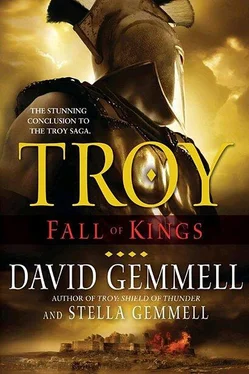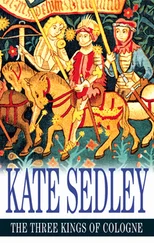Stella Gemmell - Fall of Kings
Здесь есть возможность читать онлайн «Stella Gemmell - Fall of Kings» весь текст электронной книги совершенно бесплатно (целиком полную версию без сокращений). В некоторых случаях можно слушать аудио, скачать через торрент в формате fb2 и присутствует краткое содержание. Год выпуска: 2011, Жанр: Исторические приключения, на английском языке. Описание произведения, (предисловие) а так же отзывы посетителей доступны на портале библиотеки ЛибКат.
- Название:Fall of Kings
- Автор:
- Жанр:
- Год:2011
- ISBN:нет данных
- Рейтинг книги:4 / 5. Голосов: 1
-
Избранное:Добавить в избранное
- Отзывы:
-
Ваша оценка:
- 80
- 1
- 2
- 3
- 4
- 5
Fall of Kings: краткое содержание, описание и аннотация
Предлагаем к чтению аннотацию, описание, краткое содержание или предисловие (зависит от того, что написал сам автор книги «Fall of Kings»). Если вы не нашли необходимую информацию о книге — напишите в комментариях, мы постараемся отыскать её.
Fall of Kings — читать онлайн бесплатно полную книгу (весь текст) целиком
Ниже представлен текст книги, разбитый по страницам. Система сохранения места последней прочитанной страницы, позволяет с удобством читать онлайн бесплатно книгу «Fall of Kings», без необходимости каждый раз заново искать на чём Вы остановились. Поставьте закладку, и сможете в любой момент перейти на страницу, на которой закончили чтение.
Интервал:
Закладка:
At the palace Helikaon was ushered through to the gardens, where nobles hoping to see the king were allowed to wait in comfort rather than stand in the crowded megaron. There was a chill in the air, and several braziers filled with burning charcoal had been set up.
Helikaon looked around, nodding greetings to those he knew. Then he turned, and his stomach tightened. Just paces away, a rust-colored cloak around her shoulders, stood Andromache, sunlight glinting upon the red gold of her hair. She was wearing a long yellow gown that sparkled like summer sunshine. Helikaon’s mouth was dry, and he felt nervous and awkward. Andromache stepped toward him.
“I was so sorry to hear of Halysia’s death,” she told him, “though my heart was lifted by the manner of it. The gods will cherish her, I think.”
“Perhaps. But in life she deserved better,” he replied. “From life, from me. The people loved her greatly, though, and they will not forget her, I think.”
“And how is the boy?”
“Dex is brave but scarred now. Last night he had nightmares and ran to my room. I slept with him curled up against me. A child should not have to see his mother die.”
“But when he grows,” she told him softly, “he will know she loved him so much that she was willing to give her life for him. It will sustain him.”
Andromache saw his handsome face soften, and he gave a sad smile. She wanted to reach out and hug him in that moment, remembering that he, too, had watched his mother die. Instead, she forced herself to stand still and said politely: “I hope you will bring your son to visit us while you are in Troy.”
“I would like that, Andromache.”
She reddened as he spoke her name. “I am here to see the king,” she told him suddenly, the comment both redundant and ridiculous, since the only reason anyone was in the garden was to see the king.
Angry with herself, she went on. “I meant to say I have been called here to see the king. A ship arrived yesterday from Thera with a message from the High Priestess. It probably concerns Kassandra. As you know, she is to become a priestess at the Temple of the Horse. You did know that?”
Sweet Artemis! Help me stop babbling!
“Yes, I did. I am to take her on the Xanthos next spring. Are you well?” he asked suddenly, concern in his eyes. “You seem flushed.”
“I am well. Just a little warm.”
“I shall fetch you some water,” he said, and moved away.
There were many people in the garden waiting to see the king. As Helikaon walked away, the crowd parted for him. Andromache could see he was oblivious to the effect he had on the people around him. He did not seem to notice the envious glances from the men or the openly admiring stares from the women.
A shadow fell across her. She looked up to see her husband, Hektor. He, too, was looking across at Helikaon, his face expressionless. Andromache thought she saw sadness in his eyes.
“What is wrong, husband?” she asked, taking his arm.
He shrugged and drew her close. “What could be wrong when I have you beside me? Did I miss any interesting conversation with Helikaon?”
“No, not really. I asked him to bring his son to see us.”
Hektor’s brow furrowed, and she felt him tense. “Why did you do that?” he asked.
“Why would I not?” she responded, suddenly uncertain.
When he answered her, the anguish in his voice was so great that the words slid through her defenses like daggers. “How many of his sons do I need in my house, Andromache?”
The shock was so great, she felt sick. Hektor had promised to raise the boy Astyanax and love him as he would his own child. He had been true to his word, and Andromache never before had heard him express such feelings. Rarely at a loss for words, Andromache had no response. She merely stood and looked at her husband, seeing yet again the resemblance to his father. Until this moment he had reflected everything that could have been great in Priam—courage, compassion, kindness—but now she wondered how many of his father’s weaknesses he also had inherited.
Turning away from him without a word, she walked to a brazier, reaching out her hands and rubbing them over the fire as if seeking warmth. There was anger in her, but not for Hektor. She was angry with herself. Of course her husband would be hurt by her invitation! He knew she loved Helikaon. She had confessed to Hektor on their first evening alone about the night she had shared a bed with Helikaon. Having survived an assassin’s blade, Helikaon had fallen into a fever, poison in his blood.
A healer from the desert told Andromache that Helikaon appeared to have lost the will to live. He suggested that a naked woman be brought to his bed to remind him of the joys of life. A few nights later, fearing Helikaon was dying, Andromache let fall her dress and slid into the bed alongside him. The following morning, when Andromache returned to his room, Helikaon told her he had dreamed of her. She realized then that he had no memory of their lovemaking. Not only had she allowed him to believe the dream, she later had kept from him the knowledge that he had a son.
Standing by the brazier, she found her mood sliding ever downward, bleak thoughts filling her mind. She had arrived in this city as a young priestess, proud and honest, determined that the deceptions and deceits of Troy would not sully her. She would not be drawn into a world of lies and intrigue. Stupid, arrogant girl, she chided herself. Since her arrival she had become pregnant by one man while betrothed to another, had seduced the old king to make him believe her son was his, and had poisoned Hekabe, the dying queen of Troy.
But Hekabe had been a queen of malice, she told herself, who had murdered her sister and would have murdered her friends. As for seducing Priam, what other course had there been? If he had discovered the truth, Astyanax would have been taken from her, perhaps killed, and she would have been executed, and Helikaon, too.
Evil will always seek to justify its actions, she reproached herself.
Her thoughts bleak, she turned toward Hektor. Before she could speak to him, she heard a young soldier call out to him. It was Polydorus, the king’s bodyguard. He crossed to where Hektor stood.
“The king is asking for you both,” he said, glancing at her, “in the Amber Room.”
Propelled by the wind the Trojans called the Scythe, the great flock of golden birds flew south, leaving behind them the icy peaks of the Rhodope Mountains and the fierce winter of Thraki. Driven by a migratory instinct, the birds dipped and swooped, skimming over the waves and isles of the Great Green. Early-morning sunshine gleamed on feathers of yellow and black as the golden cloud flew above the city of Troy.
On a high balcony, dressed in an old robe of faded gold, Priam gazed up at the migrating flock of orioles. They swooped above him, twisting and turning in the sky, as if drawn to the king’s golden robe. Priam raised his arms and called out to them. “I am your king, too, little birds.”
For a few moments the arrival of the flock made the old king forget his troubles. He recalled that his beloved Hekabe had studied the migratory habits of scores of birds: white-tailed eagles, pygmy owls, pelicans, lapwings, and many more whose names he had forgotten.
The golden orioles, though, were special to Troy, Hekabe had insisted. If their migration to the coasts of Egypte began before the Feast of Ares, the winter would be harsh and cold and full of storms and great winds.
The Feast of Ares was still eighteen days away.
Suddenly the golden birds scattered and were gone. A cold breeze whispered across the palace, making the king shiver.
“Fetch me a cloak!” he called out to his aide Polydorus. The soldier emerged on the balcony bearing a new cloak of green wool edged with gold thread. “Not that useless rag,” Priam snapped. “My own cloak, if you please.” Polydorus returned with an old brown garment that was frayed at the edges. Swirling it around his shoulders, Priam walked to the edge of the balcony.
Читать дальшеИнтервал:
Закладка:
Похожие книги на «Fall of Kings»
Представляем Вашему вниманию похожие книги на «Fall of Kings» списком для выбора. Мы отобрали схожую по названию и смыслу литературу в надежде предоставить читателям больше вариантов отыскать новые, интересные, ещё непрочитанные произведения.
Обсуждение, отзывы о книге «Fall of Kings» и просто собственные мнения читателей. Оставьте ваши комментарии, напишите, что Вы думаете о произведении, его смысле или главных героях. Укажите что конкретно понравилось, а что нет, и почему Вы так считаете.












